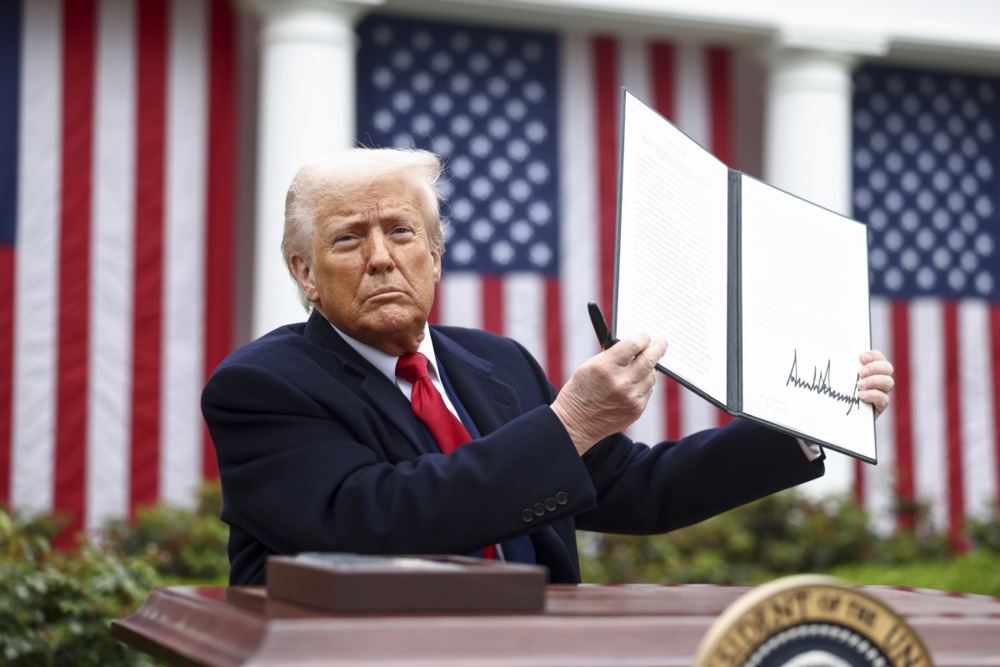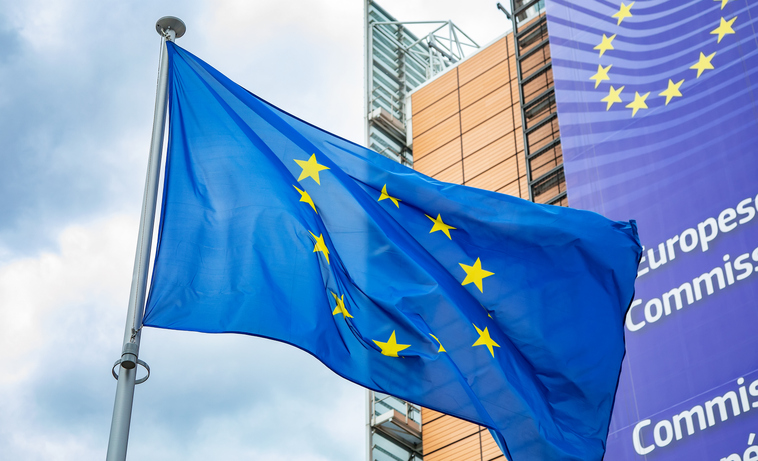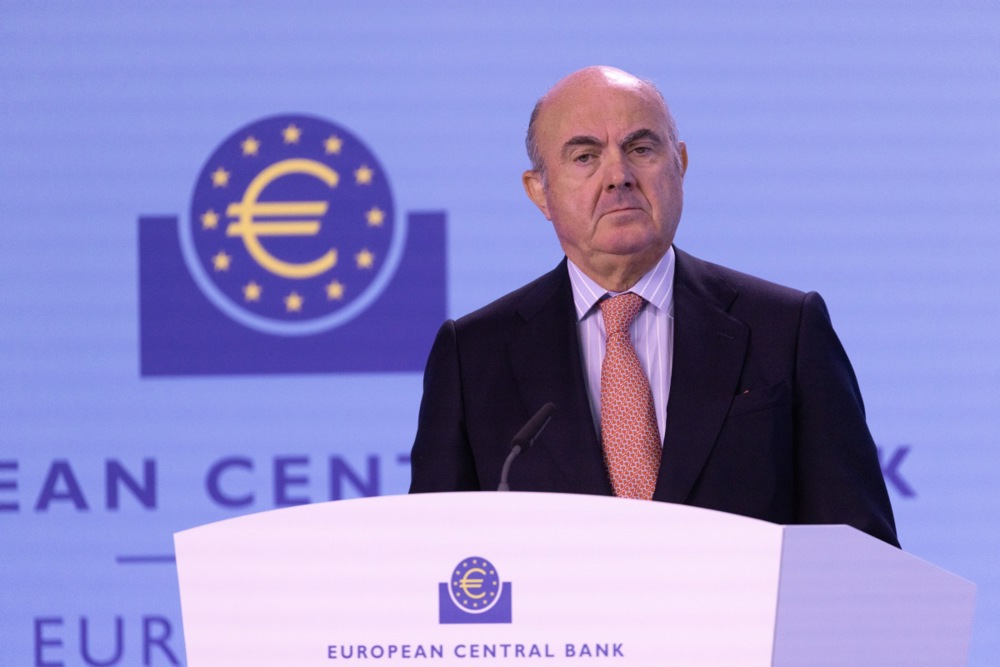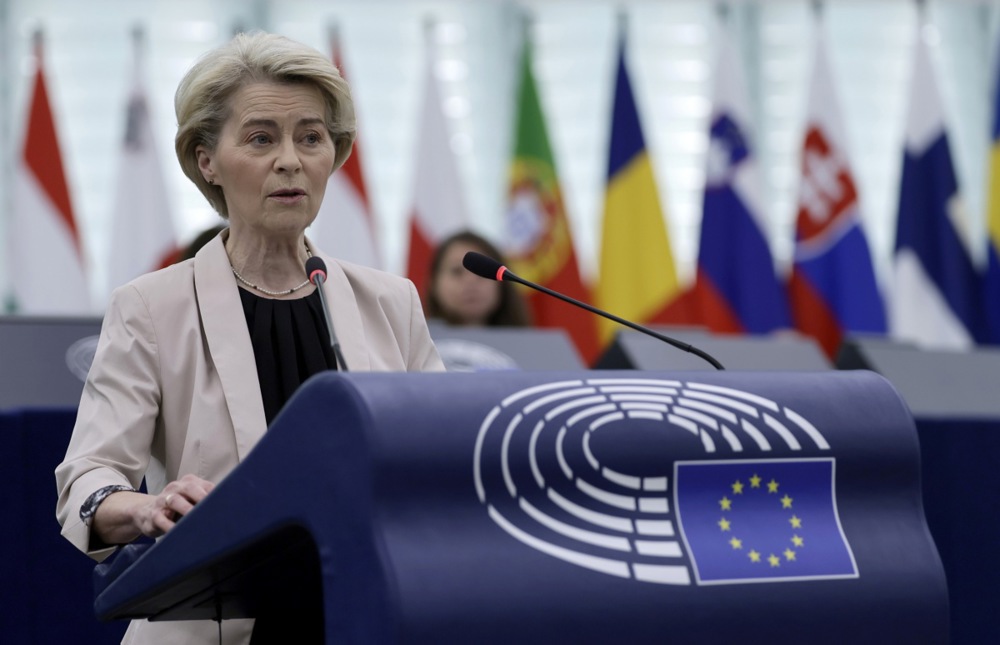Donald Trump’s wide-ranging tariffs will harm businesses and consumers on both sides of the Atlantic, EU leaders said on April 3.
While the EU was preparing “countermeasures”, the bloc is still open to negotiations to “reduce the damage”, it was reported.
Bernd Lange, Chair of the European Parliament Committee on International Trade, said: “President Trump called it ‘Liberation Day’ and I will call it ‘Inflation Day’,” adding that the US move “will increase prices in the US and probably also in the EU”.
Lange said he read the “booklet about justification” published by the US administration.
“There are 30 pages about the EU… and this is a clear indication that President Trump is not really looking at tariffs, because the average tariffs between EU and US is 5 per cent,” he said.
Indeed, Trump wants to retaliate against non-tariffs barriers, which he says put American manufacturers at a disadvantage. These include “unfair” subsidies and the effects of regulations protecting personal data, as well as value-added taxes, manipulated exchange rates, and lax intellectual property protections.
The EU now plans to react in a similar fashion, including non-tariff barriers in its calculations.
Lange added that the “real value” of the rate, including the products that the EU imported tariff-free from the US, was only “about 1.5 to 2 per cent”.
In the booklet, “the justification for this 39 per cent, and generously 20 per cent, is just European legislation: Standards for consumer protection, chemical rights and also, of course, our legislation in digital area and this is, of course, not grounds for negotiation”, Lange added.
That, he said, did not take away from the fact that the main EU strategy remained a negotiated solution.
On April 3, European Commission President Ursula von der Leyen stated: “There is an alternative path, it is not too late to address concerns through negotiations, this is why our trade commissioner is currently engaged with his US counterparts. We will work towards reducing barriers, not raising them”.
“We will continue to build bridges with all those that like us care about fair and rule based trade as a basis for shared prosperity”.
Industries echoed the institutions’ push for dialogue: “It is in the best interest of both the EU and US to reach a negotiated solution,” said BusinessEurope director general Markus J Beyrer.
“Swift ratification of the concluded agreements with Mercosur and Mexico is crucial in this respect. Given the current geopolitical context, the EU must strengthen its economy and competitiveness to enhance its negotiating leverage,” he added, in light of the fact that von der Leyen recently said a key element in the EU response was diversification.
Lange blamed the current situation on “the structure of the US Government”.
“It is really a mess that it was not possible to have some constructive talks … because of the government structure in the US … it was not possible to organise talks with US to discuss this deficit on goods and, by the way, we have a deficit on services on the European side.”
The EC has published figures on the current value of EU-US trade and investment.
“When goods and services are taken into account, the EU has a small surplus with the US of $48 billion [€43.3 billion]; this is the equivalent of just 3 per cent of total EU-US trade of €1.6 trillion,” the report said.
“It should also be noted that the EU has a trade deficit with the US when it comes to trade in services, where the US records a surplus of €109 billion. In this sense, our economies complement each other very well,” it added.
Von der Leyen expressed “deep regret” at Trump’s tariffs announcement.
“We have always been ready to negotiate with the US to remove the remaining barriers to transatlantic trade. At the same time …. we are already finalising the first package of countermeasures in response to tariffs on steel, and we are now preparing for further countermeasures, to protect our interests and our businesses if negotiations fail,” she said.
Her comments were in line with those of other countries, including China.
“China firmly opposes this and will take countermeasures to safeguard its own rights and interests,” its Ministry of Commerce said.
The US decision disregards years of multilateral trade agreements and the advantages it has historically gained from global trade, the ministry stated.
The baseline charges will take effect on April 5, with higher duties set to begin on April 9.
The reciprocal tariffs will be imposed uniformly on all goods arriving from a specific country, although some exceptions would apply.
According to a White House document, steel, aluminium and cars — already subject to Trump-era tariffs — will not be further impacted by the new reciprocal tariffs.
Additionally, copper, pharmaceuticals, semiconductors and lumber products, which are soon expected to undergo a tariff investigation via Section 232 of the Trade Expansion Act, would also be exempt. Other exemptions include bullion, energy, and certain minerals unavailable in the US.
“We have already announced new measures to support the steel and car sectors, last week we limited the amount of steel that can be imported to Europe tariff free. Now we will also convey strategic dialogues with the steel, the automotive and the pharmaceutical sectors, and others will follow,” said Von der Leyen.
Lange added: “It will take a little bit of time. This is also linked to our democratic process … Inside the EU, we are deciding on the countermeasures in a democratic way based on proper legislation … We have a different way to decide, it’s not only one man deciding everything.”





